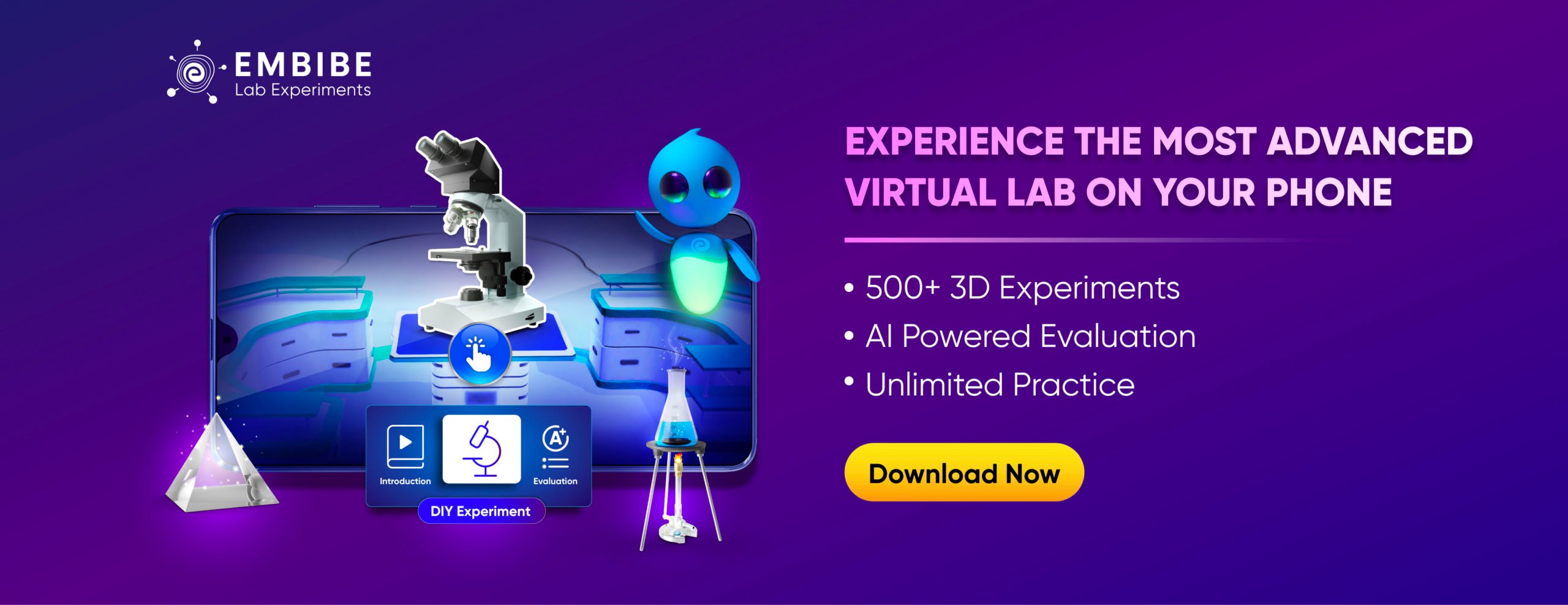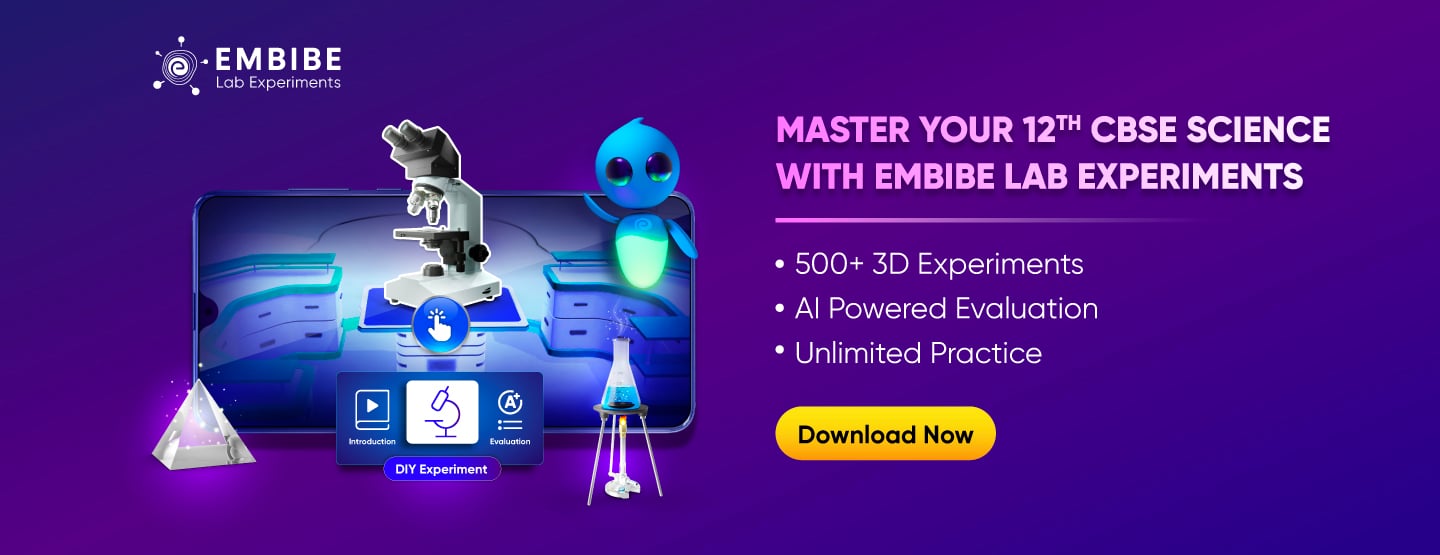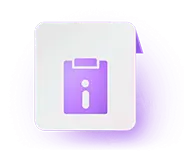- Written by aparna
- Last Modified on 29-07-2025
Telangana Board Class 12 Exam 2025
The Telangana State Board of Intermediate Education, TSBIE is responsible to regulate and supervise the system of Intermediate education in the state of Telangana. The board is also responsible for course design, syllabus preparation, examination administration, guidance, and support for all educational institutions. The board conducts the Telangana Board Class 12 exam every year and supervises the exam pattern, exam dates and results.
Class 12 is an important part of a student’s journey as it paves the way for higher education and shapes their career goals. The board prepares the curriculum for Class 12 and ensures that students learn the required skills that are in demand. This article discusses the Telangana Board Class 12 exam in detail. Continue reading to learn more about the exam and important information like exam dates, syllabus, exam pattern, preparation tips, and many more.
Telangana Board Class 12 Exam Summary 2025
Telangana State Board of Intermediate Education, Hyderabad conducts TS Intermediate Exam in pen-paper mode. For subjects without practical paper, only a theory exam is conducted for a maximum of 100 marks. For subjects having practical papers, both theory and practical exams are conducted separately. The exam duration is for 3 hours and students have to complete all their answers within the alloted time. Before going into further details let us have a look at the Telangana State Board Class 12 exam summary in the table below:
| Particulars |
Details |
| Name of the Exam |
Telangana State Board Intermediate 2nd Year Exam |
| Commonly Known as |
TSBIE Class 12 (TSBIE II Year) |
| Conducting Body |
Telangana State Board of Intermediate Education, Hyderabad |
| Level of Exam |
State-level |
| Mode of Registration |
Online/ Offline |
| Mode of Exam |
Offline |
| Class 12 Language Subjects |
English, Telugu, Hindi, Sanskrit, French, Urdu, Arabic, Oriya, and Tamil |
| Class 12 Academic Subjects |
Mathematics II A, Mathematics II B, Physics, Chemistry, Botany, Zoology, Commerce, Economics, Civics, History, Psychology, Geography, Geology, Logic, Public Administration, Sociology. |
| Frequency of Exam |
Once a Year |
| Theory Exam Date |
March 5 to March 25, 2025 |
| Exam Duration |
3 Hours |
| Result |
Yet To Be Released |
| Official Website |
TSBIE Official Website |
Telangana Board Official Website
https://tsbie.cgg.gov.in/home.do
Telangana Board Class 12 Latest Update 2025
- TS Intermediate Time Table 2025 PDF has been released.
Telangana Board Class 12 Application Form
The application form needs to be filled out by all students who will be appearing for the board exam. Students who have not completed the application form will be unable to sit for the board exam. The school authorities usually do the application filling process. And students should submit the registration fee to the schools. The information submitted on the application form will be used to print out students’ details on their admit card. Below are the steps to fill out the Telangana Board Class 12 application form:
- Step 1: Visit the board’s website at https://tsbie.cgg.gov.in/home.do
- Step 2: On the homepage, search for the link, ‘Telangana Board 2nd Year Intermediate Application/ Registration Form.’
- Step 3: Click on the link, which will appear on a new tab, and fill in the user id and password.
- Step 4: Once logged in, the form will appear, and school authorities have to fill out all the details asked carefully.
- Step 5: Pay the registration fee online and click on ‘Submit.’
Telangana Board Class 12 Exam Pattern 2025
Telangana State Board of Intermediate Education (TSBIE), Hyderabad, conducts exams for all enrolled students of Class 12. Students are evaluated in Part I English, Part II Second Language, and Part III group subjects. To qualify for the examination effectively, students should score a minimum of 35% in each subject. The medium of the question paper is in English or Telugu for all the subjects apart from optional languages. The exam duration is 3 hours. The maximum marks for each subject vary from 60 to 100. The table given below provides the details of the maximum marks in each subject.
| Section |
Subject |
Maximum Marks |
| Part I |
English |
100 |
| Part II: Second Language |
Telugu |
100 |
| Hindi |
100 |
| Sanskrit |
100 |
| French |
100 |
| Urdu |
100 |
| Arabic |
100 |
| Oriya |
100 |
| Tamil |
100 |
| Kannada |
100 |
| Marathi |
100 |
| Part III: Optional Subjects |
| Science |
Mathematics IIA |
75 |
| Mathematics IIB |
75 |
| Physics |
60 |
| Chemistry |
60 |
| Botany |
60 |
| Zoology |
60 |
| Humanities |
Commerce |
100 |
| Economics |
100 |
| Civics |
100 |
| History |
100 |
| Psychology |
100 |
| Geography |
100 |
| Geology |
100 |
| Logic |
100 |
| Public administration |
100 |
| Sociology |
100 |
| Modern Language Subjects |
English |
100 |
| Telugu |
100 |
| Hindi |
100 |
| Urdu |
100 |

Telangana Board Class 12 Exam Pattern Details – Total Time
The time duration of a TS Intermediate theory exam and a practical exam is 3 hours each. At the beginning of each exam, 15 minutes are allotted to fill in details in the question paper and answer sheets and to read the instructions clearly. There is no negative marking in theory as well as in the practical exam.
Telangana Board Class 12 Exam Pattern Details – Scoring Pattern
The scoring pattern helps students to know the marking scheme of questions and what types of questions can be asked in the exam. This gives them a better idea to prepare for the exam strategically. The Telangana Board Class 12 question paper usually has MCQs, objective-type questions, and descriptive-type questions. The table below provides a summary of the exam pattern:
| Question Type |
Mark |
| Very short answer questions |
1 mark |
| Short answer type questions-I |
2 mark |
| Short answer type questions-II |
3 mark |
| Long answer type questions |
5 mark |
Telangana Board Class 12 Syllabus 2025
Knowing the syllabus is important while preparing for any exam. The board prescribes the syllabus for Telangana Board Class 12 exam. It aims to to instil critical thinking, open-mindedness, and flexibility in students’ learning. Referring to the syllabus gives students an overview of the subject and what are the chapters or topics to be studied. In this way, they can plan their studies properly to ensure that all the subjects are thoroughly covered. Students can find the Telangana Board Class 12 subject-wise syllabus in the sections below.
Telangana Board Class 12 Physics Syllabus
Physics is a subject that deals with studying the universe, energy and matter, and many other topics. Students should ensure that they have clear conceptual understanding and practice the questions at the end of each chapter. The detailed TS 2nd year Physics syllabus is mentioned below:
|
Chapter No.
|
Chapter Name
|
|
1
|
Waves
|
|
2
|
Ray Optics and Optical Instruments
|
|
3
|
Wave Optics
|
|
4
|
Electric Charges and Fields
|
|
5
|
Electrostatic Potential and Capacitance
|
|
6
|
Current Electricity
|
|
7
|
Moving Charges and Magnetism
|
|
8
|
Magnetism and Matter
|
|
9
|
Electromagnetic Induction
|
|
10
|
Alternating Current
|
|
11
|
Electromagnetic Waves
|
|
12
|
Dual Nature of Radiation and Matter
|
|
13
|
Atoms
|
|
14
|
Nuclei
|
|
15
|
Semiconductor Electronics: Materials, Devices and Simple Circuits
|
|
16
|
Communication System
|
Telangana Board Class 12 Chemistry Syllabus
Class 12 Chemistry involves many theories, chemical reactions, elements and compounds, and many more. Students should ensure that they study all the chapters from the syllabus. The detailed TS Intermediate Chemistry syllabus is tabulated below:
|
Chapter No.
|
Chapter Name
|
|
1
|
Solid State
|
|
2
|
Solutions
|
|
3
|
Electrochemistry
|
|
4
|
Chemical Kinetics
|
|
5
|
Surface chemistry
|
|
6
|
General Principles of Metallurgy
|
|
7
|
p-Block Elements
|
|
8
|
d and f Block Elements & Coordination Compounds
|
|
9
|
Polymers
|
|
10
|
Biomolecules
|
Telangana Board Class 12 Biology Syllabus
Biology is a subject that involves a lot of theories, diagrams, and scientific names and requires students to memorise most of the concepts. The Telangana Board Class 12 Biology consists of two sections – Botany and Zoology. The detailed syllabus for Telangana Board Class 12 Biology is tabulated below:
|
Chapter No.
|
Chapter Name
|
|
1
|
Transport in Plants
|
|
2
|
Mineral Nutrition
|
|
3
|
Enzymes
|
|
4
|
Photosynthesis in Higher Plants
|
|
5
|
Respiration in Plants
|
|
6
|
Plant Growth and Development
|
|
7
|
Bacteria
|
|
8
|
Viruses
|
|
9
|
Principles of Inheritance and Variation
|
|
10
|
Molecular Basis of Inheritance
|
|
11
|
Biotechnology: Principles and Processes
|
|
12
|
Biotechnology and its Applications
|
|
13
|
Strategies for Enhancement in Food Production
|
|
14
|
Microbes in Human Welfare
|
|
15
|
Digestion and Absorption
|
|
16
|
Breathing and Exchange of Gases
|
|
17
|
Body Fluids and Circulation
|
|
18
|
Excretory Products and their Elimination
|
|
19
|
Musculo-Skeletal System
|
|
20
|
Neural Control and Coordination
|
|
21
|
Endocrine System and Chemical Coordination
|
|
22
|
Immune System
|
|
23
|
Human Reproductive System
|
|
24
|
Reproductive Health
|
|
25
|
Genetics
|
|
26
|
Organic Evolution
|
|
27
|
Applied Biology
|
Telangana Board Class 12 Mathematics Syllabus
Maths is a subject that requires a lot of practice and conceptual clarity. And students should ensure that they study and practice all the questions thoroughly to ace the Maths exam. They can refer to the table below for the detailed syllabus of Telangana Board Class 12 Maths:
|
Chapter No.
|
Chapter Name
|
|
1
|
Complex Numbers
|
|
2
|
De Moivre’s Theorem
|
|
3
|
Quadratic Expressions
|
|
4
|
Theory of Equations
|
|
5
|
Permutations and Combinations
|
|
6
|
Binomial Theorem
|
|
7
|
Partial Fractions
|
|
8
|
Measure of Dispersion
|
|
9
|
Probability
|
|
10
|
Random Variables and Probability Distributions
|
|
11
|
Circle
|
|
12
|
System of Circles
|
|
13
|
Parabola
|
|
14
|
Ellipse
|
|
15
|
Hyperbola
|
|
16
|
Indefinite Integration
|
|
17
|
Definite Integration
|
|
18
|
Differential Equations
|
Telangana Board Class 12 Practical Exam List
Telangana State Board of Intermediate Education provides guidelines for conducting practical examinations for Class 12. The practical exam is conducted in the respective school as per the guidelines given by the board within a scheduled timetable.
Candidates have to give these practical exams without fail, as the marks of these practicals are added to the final board exam marks. The TS Intermediate syllabus of Physics, Chemistry, Botany and Zoology practicals are given below.
Class 12 Physics Practical Syllabus
The Physics practicals allow students to have a hands-on experience on the concepts they have learned in class. These practicals are conducted to give students in-depth understanding of the concepts and their applications. Below, we have provided Telangana board Class 12 Physics practical syllabus for your reference:
| Sl. No. |
Name of the Practical |
| 1 |
The velocity of sound in air (Resonance Method) |
| 2 |
Determination of focal length of Concave Mirror |
| 3 |
Determination of focal length of a Convex Lens |
| 4 |
Mapping of magnetic lines of force – Locating neutral points |
| 5 |
Refractive Index of material of a prism |
| 6 |
Tangent Galvanometer |
| 7 |
Ohm’s law – Verification |
| 8 |
Meter bridge – Determination of specific resistance |
| 9 |
Junction diode – Characteristics |
| 10 |
Transistor characteristics |
Class 12 Chemistry Practical Syllabus
The Chemistry practicals cover all three sections of Chemistry. Doing the practicals can help students understand the theory better and their relevance in real life. Below, we have provided Telangana board Class 12 Chemistry practical syllabus for your reference:
| Sl. No. |
Section |
Name of the Practical |
| 1 |
Surface Chemistry |
(a) Preparation of one lyophilic and one lyophobic sol. Lyophilic sol – starch, egg albumin and gum Lyophobic sol – aluminium hydroxide, ferric hydroxide, arsenious sulphide.
(b) Study of the role of emulsifying agents in stabilizing the emulsions of different |
| 2 |
Chemical Kinetics |
(a) Effect of concentration and temperature on the rate of reaction between Sodium Thiosulphate and Hydrochloric acid.
(b) Study of reaction rates of any one of the following:
(i) Reaction of Iodide ion with Hydrogen Peroxide at room temperature using different concentrations of Iodide ions.
(ii) Reaction between Potassium Iodate, (KIO3) and Sodium Sulphite: (Na2SO3) using starch solution as an indicator (clock reaction). |
| 3 |
Thermochemistry |
Any one of the following experiments
i) Enthalpy of dissolution of copper sulphate or potassium nitrate.
ii) Enthalpy of neutralization of strong acid (HCl) and strong base (NaOH)
iii) Determination of enthalpy change during interaction (Hydrogen bond formation) between acetone and chloroform |
| 4 |
Electrochemistry |
Variation of cell potential in Zn/Zn2+|| Cu2+/Cu with change in concentration of electrolytes (CuSO4 or ZnSO4) at room temperature. |
| 5 |
Chromatography |
i) Separation of pigments from extracts of leaves and flowers by paper chromatography and determination of Rf values.
ii) Separation of constituents present in an inorganic mixture containing two cations only (constituents having a large difference in Rf values to be provided). |
| 6 |
Preparation of Inorganic Compounds |
i) Preparation of double salt of ferrous ammonium sulphate or potash alum.
ii) Preparation of potassium ferric oxalate. |
| 7 |
Preparation of Organic Compounds |
Preparation of any two of the following compounds
i) Acetanilide
ii) Di-benzal acetone
iii) β-Naphthol aniline azo dye |
| 8 |
Tests for the functional groups present in organic compounds |
Alcoholic, phenolic, aldehydic, ketonic, carboxylic and amino (primary) groups. |
| 9 |
Tests for foodstuff |
Characteristic tests of carbohydrates, fats and proteins in pure samples and their detection in given foodstuffs. |
| 10 |
Determination of concentration/molarity |
Determination of concentration/molarity of KMnO4 solution by titrating it against a standard solution of
i) Oxalic acid,
ii) Ferrous ammonium sulphate |
| 11 |
Qualitative analysis |
Identification of one cation and one anion in the given salt |
Class 12 Botany Practical Syllabus
Below, we have provided Telangana board Class 12 Biology practical syllabus for your reference:
| Sl. No. |
Name of the Practical |
| Part – I (To be performed by students) |
| 1 |
Study of Osmosis by Potato Osmoscope. |
| 2 |
Study of Plasmolysis in epidermal peels. |
| 3 |
Comparative study of the rates of transpiration in the upper and lower surfaces of leaves. (by COCl2 method) |
| 4 |
Separation of plant pigments through paper chromatography. |
| 5 |
Study of plant population density and frequency by quadrant method. |
| 6 |
Preparation of temporary mount of monocot and dicot root and monocot and dicot stem. |
| Part – II (To be Demonstrated by Teacher) |
| 7 |
Study of distribution of stomata in the upper and lower surfaces of the leaf |
Class 12 Zoology Practical Syllabus
Below, we have provided Telangana board Class 12 Zoology practical syllabus for your reference:
| Sl. No. |
Section |
Name of the Practical |
| 1 |
Vertebrate Slides of Mammal |
T.S. of stomach
T.S. of intestine
L.S. of kidney
T.S. of liver
T.S. of pancreas
T.S. of testis
T.S. of ovary |
| 2 |
Vertebrate Specimens |
Shark
Rohu
Catla
Labeo
Frog
Sea snake
Naja naja
Viper
Pigeon
Rabbit |
| 3 |
Osteology |
Ball and socket joint
Hinge joint
Pivot joint
Gliding joint |
| 4 |
Physiology Experiments |
Demonstration of digestion of starch by salivary amylase.
Identification of the presence of starch in the given samples.
Identification of the presence of glucose in the given samples.
Identification of the presence of lipids/fats in the given samples.
Identification of the presence of albumin in the given samples. |
| 5 |
Dissections |
The digestive system of humans.
The arterial system of humans.
The venous system of humans.
Urinogenital system of humans. |
Telangana Board Class 12 Exam Dates 2025
TSBIE has released the Telangana Board 2nd Year Intermediate exam dates 2025 on its official website. the exam will commence on March 5 to March, 2025. Students can refer to the timetable below and start preparing for the exam right away.
|
Date
|
Subjects (9 am to 12 noon)
|
|
March 2024
|
2nd Language Paper-II
|
|
March 2024
|
English Paper- II
|
|
March 2024
|
Mathematics Paper-IIA, Botany Paper-II, Political Science Paper-II
|
|
March 2024
|
Mathematics Paper-IIB, Zoology Paper-II, History Paper-II
|
|
March 2024
|
Physics Paper-II, Economics Paper-II
|
|
March 2024
|
Commerce Paper-II, Chemistry Paper-II
|
|
April 2024
|
Bridge Course Maths Paper-II (for BI.P.C students), Public Administration Paper-II
|
|
April 2024
|
Geography Paper-II, Modern Language Paper-II
|
Telangana Board Class 12 Admit Card 2025
Telangana State Board of Intermediate Education (TSBIE) will release the TSBIE Intermediate admit card 2025 on its official website tsbie.cgg.gov.in in February 2025. TS 2nd year admit card is the most important document, and it is mandatory for every student to bring it to the exam centre. The admit card contains information such as the student’s roll number, exam venue, important instructions, and many more. Once the admit cards are released, students can get them from their respective schools.
Telangana Board Class 12 Study Plan to Maximize Score
A proper strategy can positively impact the preparation and help candidates secure their desired scores in the final examination. It ensures that students are geared up with the right resources and approach to tackle the board examinations. Having a proper strategy is not only helpful while preparing for the final exam, but can also be implemented in the daily study schedule to help students achieve their goals more easily. Below, we have come up with some preparation tips and a study plan to help students ace their Telangana Board Class 12 exam.
Telangana Board Class 12 Preparation Tips
Following some preparation tips are a smart way to prepare for exams. Besides thorough studies, these tips ensure that students gain an edge over the exams and smoothens the learning process. Here are some preparation tips for scoring good marks in Telangana Board Class 12 exams:
- Students should be aware of their strengths and weaknesses and prepare accordingly.
- For the chapters which have numerical problems, try to write and practice most of them by yourself.
- While studying any topic, students can refer to ebooks and 3D videos on Embibe to get a deeper understanding of the concepts.
- Keep a well-disciplined timetable so that you can study every day in an orderly manner.
- Spend a little more time on the subject and topics you feel are difficult.
- They should solve past years’ questions and take mock tests to evaluate their preparedness and have a better understanding of the exam pattern.
- They can do so on Embibe which provides them for.
- Try to study every day so that one can finish all the topics prior to their examination, and gradually, one will get time to revise every topic.
Telangana Board Class 12 Detailed Study Plan
Having a detailed plan ensures that students are studying all subjects in the right manner. It gives them a path to follow so that they can score good marks in all subjects. The detailed study plan for Telangana Board Class 12 exam is provided below:
- Mathematics is a subject that requires a lot of practice and clear concepts. So, students should clear their concepts and practice as many questions as they can. They should first understand the concepts behind formulas to ease memorisation. They can allocate at least 1.5 hours daily to learn some concepts and practice questions. It is also recommended to take weekly mock tests or solve previous year’s questions.
- Physics contains theories and numerical problems as well. Students should first understand the concept so that they can solve numericals and derive equations. They should practice all questions at the end of the chapters. They can allocate 1 to 2 hours daily for both practicing and learning.
- Chemistry requires students to be well-versed in certain concepts and especially the periodic table. They can have a separate chart for the periodic table and try to remember at least 3-4 elements with their properties daily. Practicing chemical reactions help them be more proficient in solving them.
- Biology can be a lengthy subject to study as it has many theories. Students should try to remember all the concepts and scientific names. Practicing diagrams also help them label and dram them correctly in the exam. They can study this subject at least for 1.5 hours daily.

Telangana Board Class 12 Result 2025
The result date for the 2025 exam is yet to be declared. When the TSBIE Inter result is out, it can be downloaded from the official website. The Class 12 result is an important factor that helps colleges or universities decide if students can be admitted to their institute for the course they have applied for. Below are the steps to download the result from the website:
- 1st Step: Visit the official website of the Telangana State Board.
- 2nd Step: Click the Telangana Board 2nd Inter Result link in the notifications.
- 3rd Step: Enter the requested credentials. Click on submit button.
- 4th Step: The result will be displayed on the screen. Download the PDF of the result.
Telangana Board Class 12 Exam Toppers List
TSBIE, Hyderabad will release the Telangana Board Intermediate Toppers list 2025 after declaring the result. Board has not released TS Intermediate toppers’ names since 2020.
Telangana Board Class 12 Supplementary Exam 2025
Students who do not pass the TS intermediate exam in one go will be allowed to appear for the TS 2nd year supplementary exam 2025. The exam gives students a second chance to clear their exam if they have failed one subject. The exam dates will be declared after the results for the main exams are out. Students can bookmark this page for updates about the TS 2nd Year Intermediate supplementary exam.
FAQs on Telangana Board Class 12 Exam 2025
Here are some frequently asked questions about the Telangana State Board Class 12 exam.
Q: What is the passing percentage in the Telangana State Board Class 12 exams?
Ans: Students should score at least 35% marks in each subject to pass the Telangana State Board intermediate exams.
Q: How can I check the results of the Telangana State Board Class 12 exam?
Ans: To check the results of the Telangana State Board Class 12 exam, go to the official website, then select your course, enter the exact hall ticket number, and click to get the result.
Q: Where can I get study materials for the TS Intermediate 2nd year exam?
Ans: Embibe provides study materials such as ebooks, 3D videos, practice questions, previous years’ questions, and many more for the TS Intermediate 2nd year exam.
Q: Where can I get the Telangana State Board Class 12 syllabus?
Ans: Students can get the Telangana State Board Class 12 syllabus on this page.
Q: Where can I take mock tests for Telangana Board Class 12 exam?
Ans: Students can take the Telangana Board Class 12 mock tests on Embibe.
Telangana Board Class 12 List of Institutions
There are many schools affiliated with the Telangana Board that offers Intermediate education to students in the state. And it is important to choose schools wisely to develop good life skills and education. The following is a list of a few famous government schools in Telangana:
| List of Schools |
Board |
Location |
| Zilla Parishad High School, Kukatpally, Telangana |
Government |
Kukatpally, Telangana |
| Government High School Raj Bhavan, Somajiguda, Telangana |
Government |
Somajiguda, Telangana |
| Government High School, Vijaya Nagar Colony, Telangana |
Government |
Vijaya Nagar Colony, Telangana |
| Government High School, Zamistanpur, Telangana |
Government |
Zamistanpur, Telangana |
| Government High School, Toli Chowki, Telangana |
Government |
Toli Chowki, Telangana |
| Government High School, Brahmanwadi, Telangana |
Government |
Brahmanwadi, Telangana |
| Government Girls Primary School, Secunderabad, Telangana |
Government |
Secunderabad, Telangana |
| Government Nehru Memorial High School, Malakpet Colony, Telangana |
Government |
Malakpet Colony, Telangana |
| Government High School, Somajiguda, Telangana |
Government |
Somajiguda, Telangana |
| Nanakramguda Government School, NanakramGuda, Hyderabad, Telangana |
Government |
NanakramGuda, Telangana |
| Government Boys Primary School Bolakpur |
Government |
Bholakpur, Telangana |
| Government School, Vemulawada, Telangana |
Government |
Vemulawada, Telangana |
List of Telangana Board Class 12 Future Exams
TSBIE 12th exam is one of the preliminary stages for most of the courses. Class 12 syllabus and preparation will help one crack the different national-level exams and acquire the various courses for future growth. A few national-level entrance exams after class 12 are listed below:
| Stream |
Exam |
| Engineering |
Joint Entrance Examination (JEE) Main
JEE Advanced
Birla Institute of Technology and Science Admission Test (BITSAT) entrance exam
COMED-K
IPU-CET (B. Tech)
Manipal (B. Tech)
VITEEE
AMU (B. Tech)
NDA Entrance with PCM (MPC) |
| Medical |
National Eligibility Cum Entrance Test (NEET) |
| Defence Services |
Indian Maritime University Common Entrance Test
Indian Navy B.Tech Entry Scheme
Indian Army Technical Entry Scheme (TES) ·
National Defence Academy and Naval Academy Examination |
| Fashion and Design |
National Institute of Fashion Technology (NIFT) Entrance Test
National Institute of Design Admissions
All India Entrance Examination for Design (AIEED)
Symbiosis Institute of Design Exam
Footwear Design and Development Institute
Maeer’s MIT Institute of Design
National Institute of Fashion Design
National Aptitude Test in Architecture
Centre for Environmental Planning and Technology (CEPT) |
| Social Sciences |
Banaras Hindu University
IIT Madras Humanities and Social Sciences Entrance Examination (HSEE)
TISS Bachelors Admission Test (TISS-BAT) |
| Law |
Common-Law Admission Test
All India Law Entrance Test (AILET) |
| Science |
Kishore Vaigyanik Protsahan Yojana (KVPY)
National Entrance Screening Test (NEST) |
| Mathematics |
Indian Statistical Institute Admission
Admissions to Universities
Various B.Sc Programs
Banasthali Vidyapith Admission |

















































